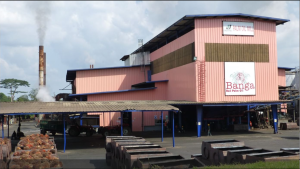

Nigeria’s primary education system teeters on the edge of collapse, a situation exacerbated by state governors’ alarming apathy towards accessing Universal Basic Education (UBE) funds. The consequences are dire: Nigeria ranks second globally in the number of out-of-school children, a statistic that signals an uncertain future for the nation. However, while state governments continue to falter, Corporate Social Responsibility (CSR) and sustainability initiatives can play a transformative role in reversing this grim outlook.
From 2020 to 2024, more than N135 billion in UBE matching grants remained untouched due to states’ failure to meet requirements such as accountability for previously accessed funds. While only Katsina and Kaduna states have accessed these funds in 2024, 27 states did not access any UBE funds between 2020 and 2023. This neglect is more than a financial oversight; it is a denial of the future for millions of children, particularly in northern states where insecurity has shuttered over 11,500 schools between 2020 and 2023.
In the face of government inaction, the private sector can step in through well-structured CSR initiatives focused on education. Businesses can adopt a multi-pronged approach that includes funding infrastructure development, providing teaching aids, and offering teacher training programs. Such initiatives should go beyond short-term philanthropy and embed sustainability principles to ensure long-term impact.
For example, companies in industries such as telecommunications, energy, and manufacturing can establish Education Support Hubs in rural areas, offering resources such as internet access, e-learning platforms, and solar-powered classrooms. This would not only bridge the digital divide but also align with Sustainable Development Goal (SDG) 4: Quality Education. Additionally, CSR programs focused on teacher training can enhance teaching quality, addressing the severe shortage of qualified teachers—a crisis exacerbated by states’ failure to recruit new educators over the past 15 years.
Sustainability in education requires the integration of local communities into the solution. Faith-based organizations and international partners have already demonstrated the power of community-driven interventions in constructing schools and providing learning materials. Building on this, companies can foster Public-Private Partnerships (PPPs) that involve local councils, non-governmental organizations (NGOs), and Parent-Teacher Associations (PTAs).
A robust example is the incorporation of green building technologies in school construction. Sustainable school designs that use locally sourced materials, solar panels, and rainwater harvesting systems can reduce operational costs and create healthier learning environments. Companies specializing in renewable energy can spearhead such projects, aligning their business objectives with social impact.
Certainly, embedding sustainable agriculture programs into school curriculums can address both educational and nutritional challenges. By introducing school gardens and farm-to-table programs, students gain hands-on agricultural skills while benefiting from school feeding initiatives. This dual focus on education and nutrition will attract children back to classrooms, reducing the number of out-of-school children while promoting long-term community resilience.
The private sector can also introduce innovative CSR funding models, such as Education Bonds and Social Impact Bonds (SIBs), to finance educational projects. Under these models, investors fund education projects with the promise of returns based on measurable outcomes such as increased school enrollment or improved literacy rates. This approach ensures accountability and aligns corporate interests with societal benefits.
For example, a beverage company could issue an SIB tied to a specific educational outcome, such as rehabilitating schools in northern Nigeria or providing scholarships to marginalized children. The success of such programs would not only enhance the company’s brand reputation but also address critical social needs, fostering goodwill among stakeholders.
Governors must recognize that education is a shared responsibility, requiring collaboration across all sectors. Private companies, civil society, and government agencies need to form Education Task Forces dedicated to addressing specific regional challenges. By pooling resources, these task forces can deploy targeted interventions, ranging from the provision of safe learning environments to the digitalization of education in conflict-affected areas.
Additionally, transparency and accountability mechanisms must be strengthened. States must meet UBE requirements by maintaining proper financial records and implementing budgetary commitments. Businesses can aid in this effort by introducing blockchain-based tracking systems for educational funds, ensuring that resources are used effectively and transparently.
The states’ apathy towards primary education is a national crisis with severe implications for Nigeria’s socio-economic future. However, the private sector, through CSR and sustainability-driven interventions, can catalyze change where government action is lacking.
And we at CSR Reporters say this a sense of surety.









